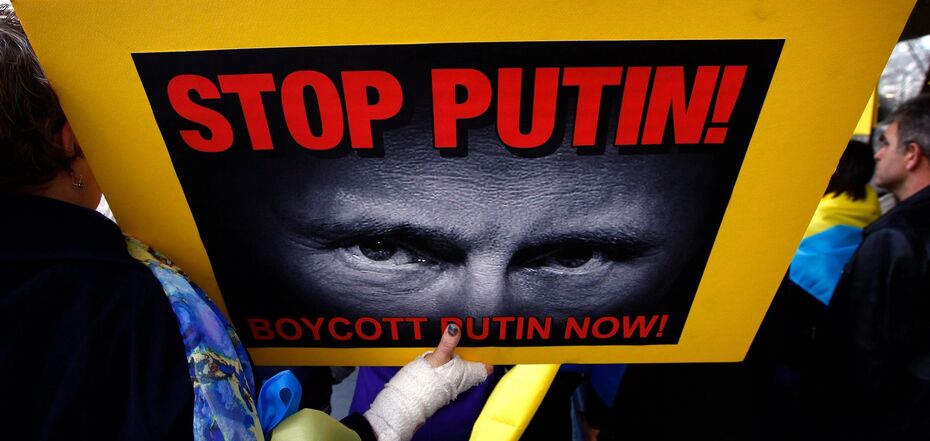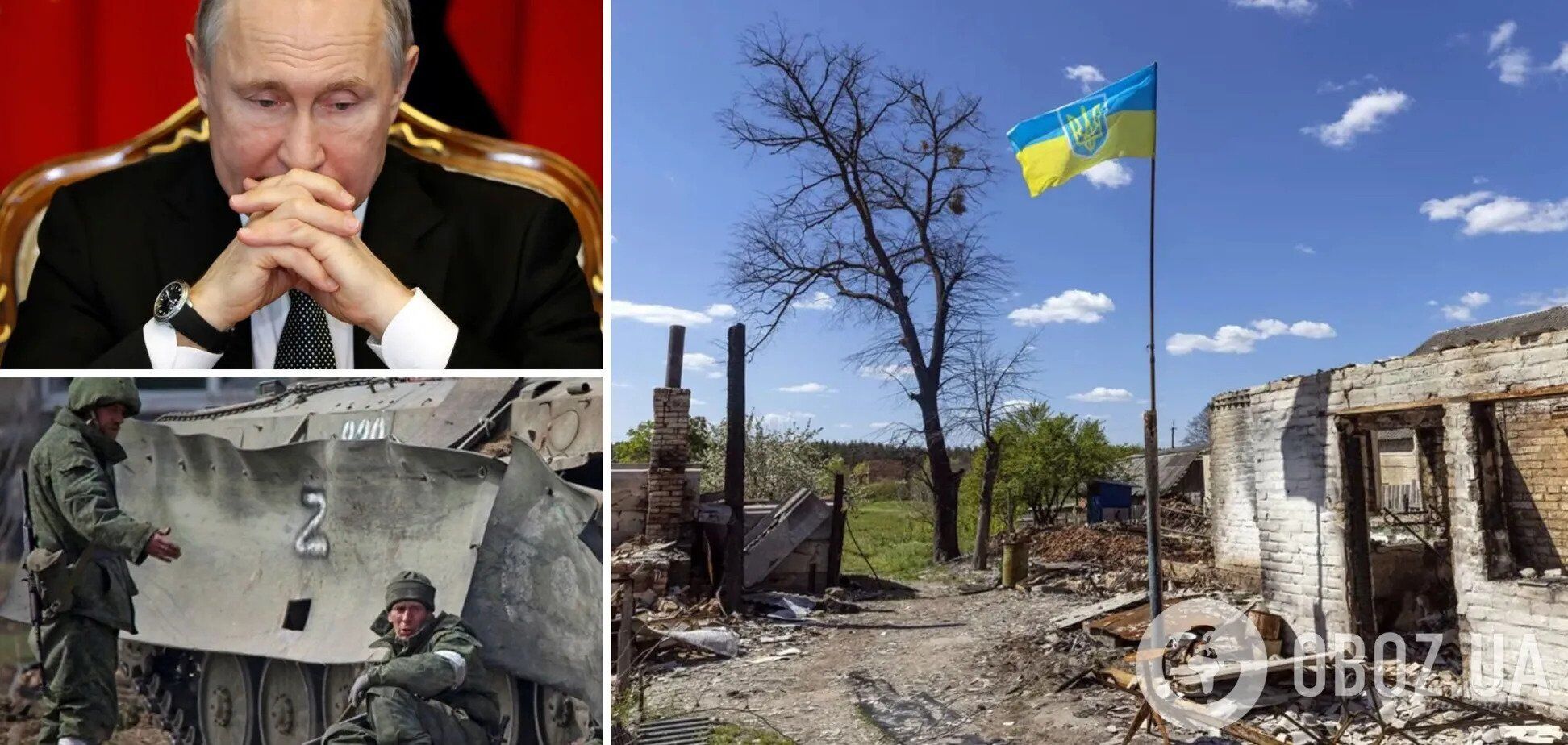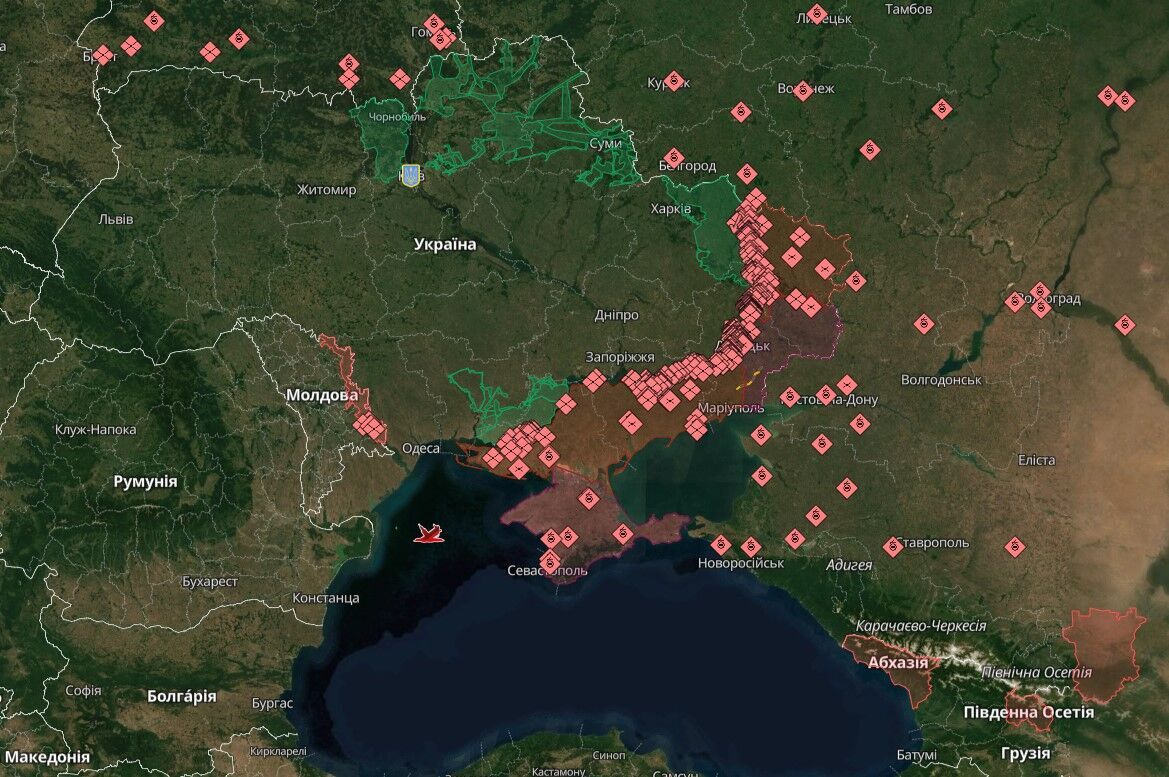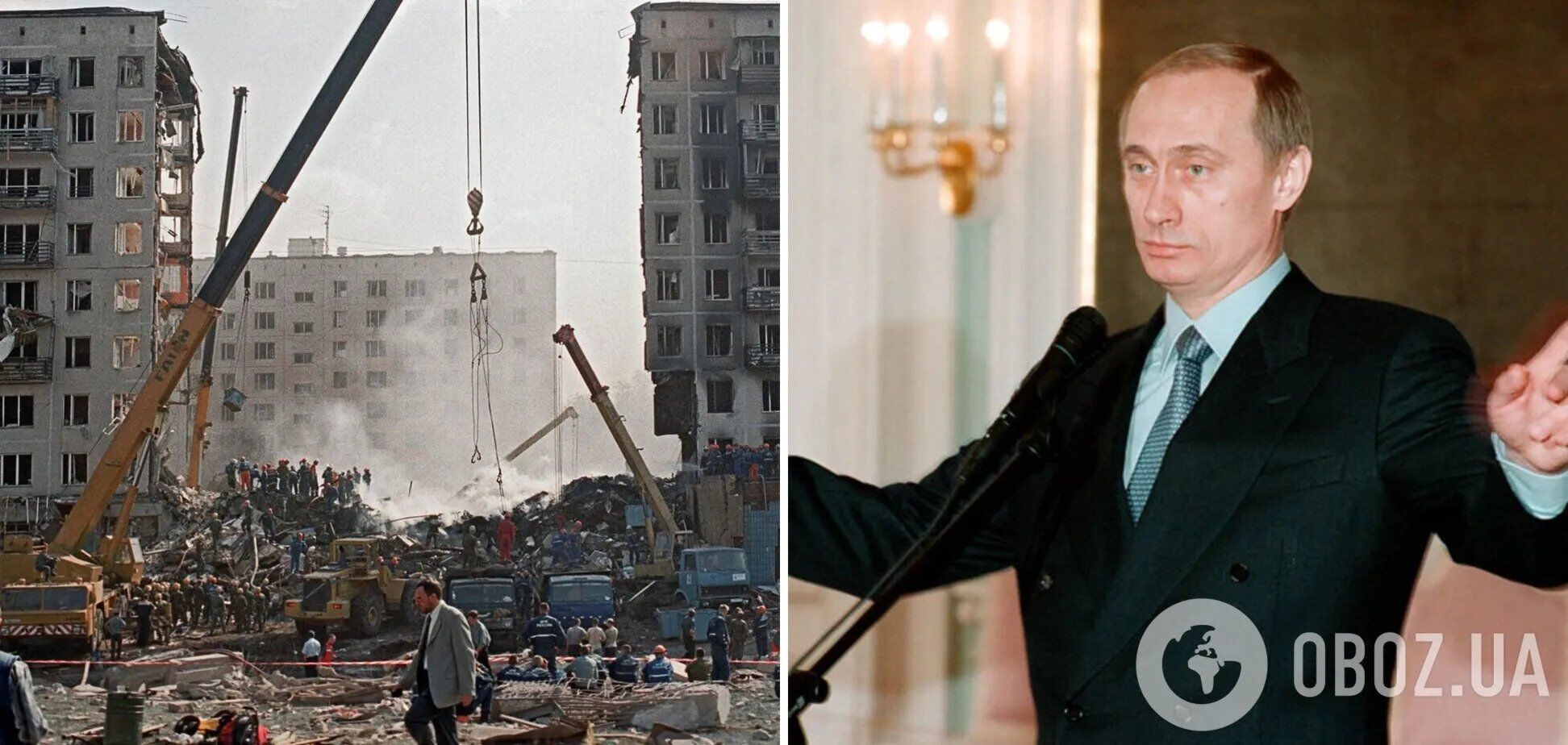News
Victims number in the tens of thousands: the main crimes of the Kremlin dictator Putin, which the world cannot forget
On May 7, Russia is organizing the "inauguration" of dictator Vladimir Putin, a criminal recognized by half the world as responsible for waging wars against neighboring states, committing terrorist attacks on the territory of his own country and killing his opponents, etc. The tyrant, who has been the leader of the aggressor country for almost a quarter of a century, could be tried for this, but instead, the Russian Federation is trying to create the illusion of the legitimacy of his "stay" in power until at least 2030.
The number of victims of Putin's regime is in the tens of thousands and is growing every day - in Ukraine, where one of the longest and bloodiest wars unleashed by him continues. OBOZ.UA recalls Putin's main crimes that the world cannot forget.
Unleashed wars and the M17 disaster
Putin's full-scale invasion of Ukraine on February 24, 2024, launched under the traditional pretext of "protecting civilians," was the largest war in Europe since World War II. A year ago, military experts predicted that the aggressor might have enough resources "for two to three years," but now the world is no longer talking about timeframes, but calling for everything to be done to help Ukrainians stop Putin now so that this war does not spread beyond Ukraine.
As Slovo i Dilo previously calculated, during the reign of the Kremlin dictator, Russia has not spent a single day without war. The shortest one was against Georgia, when the fighting lasted nine days from August 8 to 16, 2008. Formally, Putin was then prime minister, and Dmitry Medvedev was the so-called president.
For the longest time - 15 years (since April 16, 2009) - armed conflicts in the North Caucasus have been going on, in which Russians are involved, calling it the "fight against terrorism."
The second Russian-Chechen war, during which Putin became the head of the Russian Federation, lasted nine years and eight months (07.08.1999-16.04.2009). Its first phase ended in the spring of 2000 with the establishment of a pro-Russian government, and in the following years, the Russians mopped up guerrilla movements. The losses of the Russian army, according to various estimates, amounted to 7-14 thousand soldiers.
The war against Ukraine is the third longest in Putin's rule, and it has been going on for 10 years and three months since the annexation of Crimea and the occupation of part of Donbas (two years and three months or 804 days - the phase of full-scale aggression). The losses of the Russian army in this war are incomparable to any other combat operations in which it has participated - more than 476,000 killed and wounded occupants.
As part of its hybrid war against Ukraine, the terrorist state of Russia committed one of the largest crimes of international proportions - the downing of a Boeing 777 aircraft near Donetsk on July 17, 2014. This is a recognized act of destruction by the occupation forces of the Russian Federation of a civilian passenger plane of Malaysia Airlines, which was operating a regular flight MH17, killing all passengers and crew (298 people in total). On February 26, 2016, the Bellingcat group released an investigation that revealed the chain of command - the names of the commanders responsible for the downing of the passenger jetliner, from Putin to the commander of the 53rd Anti-Aircraft Missile Brigade, Muchkayev. And on November 17, 2022, the Hague District Court announced that only life imprisonment would be a sufficient punishment for Russians Igor Girkin (recently imprisoned by Putin's authorities for "extremism") and Sergei Dubinsky, as well as Ukrainian Leonid Kharchenko, who were found guilty of the MH17 crash.
In addition to terrorizing Ukraine, for almost nine years (since September 30, 2015), Russia has been involved in hostilities in Syria on the side of President Bashar al-Assad. And for almost seven years (since November 20, 2017), Russia has been expanding in Sudan and the Central African Republic - Putin has been fighting there with mercenaries, including the private military company Wagner.
Assassinations of opponents
Former Soviet KGB intelligence officer Vladimir Putin first became the head of the Russian Federation 24 years ago. During this time, he has only once fakedly removed himself from the "presidential" chair, putting his henchman Medvedev in it to prevent any opposition from coming to power. All opponents who prevented him from establishing a dictatorial regime were eliminated in Russia in one way or another, including through murder "under strange circumstances."
Navalny
Among the most high-profile deaths of Putin's enemies, at least seven victims can be mentioned, the last of whom was opposition leader Alexey Navalny. The main critic of Putin's regime died on February 16, 2024, in a high-security penal colony in the Russian polar region after a walk when he felt unwell.
The opposition figure and anti-corruption activist was imprisoned for 19 years on a number of charges. His arrest was followed by the entire democratic world, and before that, his poisoning with the Novichok nerve agent in 2020 was discussed. That is why Navalny's death has raised questions and assumptions that Putin was behind it from the very beginning. For example, the news of his death appeared on the website of the Russian Federal Penitentiary Service just two minutes after it was reported to have officially occurred. This aroused suspicions, since the Russian authorities, like any totalitarian regime, never act so quickly in such cases, especially when it comes to the death of political prisoners.
Nemtsov
Another of the most high-profile murders is the death of politician Boris Nemtsov, who was an outspoken critic of the Kremlin leader over his domestic policies. He led massive street protests against the results of the parliamentary elections in Russia, disclosed facts about corruption among officials, and was arrested several times during the dispersal of such opposition rallies. Nemtsov also supported the Orange Revolution in Kyiv, the Euromaidan in 2014, and sharply criticized Russia's policy toward Ukraine.
In February 2015, just a few hours after he called on the public to join a march against Russia's military aggression against Ukraine, the oppositionist was shot four times in the back. The next day, Nemtsov was to release a report with evidence of the Russian Armed Forces' involvement in the fighting in Donbas. After his murder, Putin said that it was "of a premeditated and provocative nature" and verbally took the investigation "under his personal control." The real murderers (who were accomplices of the Kremlin dictator's accomplice, Chechen leader Ramzan Kadyrov) and the contractors remain at large.
Berezovsky
Once one of the richest and most influential people in Russia, Boris Berezovsky is believed to have played an important role in Putin's rise to power, but he himself failed to gain a foothold with the new leader. His dispute with him led him to flee to Britain, where he vowed to overthrow Putin and convict him of his crimes. The politician also accused the Kremlin of organizing the murder of former intelligence officer and informant Alexander Litvinenko.
In 2013, Berezovsky was found dead in the locked bathroom of his home in Britain with a noose around his neck. At first, the death was ruled a suicide, but to this day it has not been officially determined. Friends and relatives of the Russian politician believe that it was a murder ordered by Putin.
Politkovskaya
Anna Politkovskaya, a reporter for Novaya Gazeta, published the books Putin's Russia and Russia Without Putin, in which she accused the Kremlin leader of turning the country into a police state. She wrote extensively about the brutal massacres in Chechnya, also blaming the Russian authorities and Kadyrov. On October 7, 2006, she was murdered in the elevator of her own home, according to human rights activists, because of her professional activities.
The investigation was led personally by the Russian Prosecutor General, and five men were convicted. The judge recognized that the murder was a contract killing, but the main person was not identified. Putin distanced the Kremlin from any involvement in the crime, saying that the journalist's death "by itself is more harmful to the authorities of Russia and the Chechen Republic... than her activities."
Litvinenko
Former KGB agent Alexander Litvinenko was a prominent critic of the Kremlin and Putin, and later accused the FSB of organizing a series of apartment bombings in Russia in 1999 that killed hundreds of people. That same year saw the Russian invasion of Chechnya and Putin's rise to power.
Litvinenko accused him of ordering Politkovskaya's murder. He followed her in 2006 and died three weeks later, after drinking a cup of tea laced with the deadly polonium-210. Investigations in Britain, where the intelligence officer lived after fleeing Russia, found that the poisoning was carried out by Russian agents Andrei Lugovoi and Dmitry Kovtun, who were carrying out orders "probably approved by Putin." Russia refused to extradite them, and in 2015, the dictator awarded Lugovoi a medal for services to the homeland.
Yushenkov and Shchekochikhin
In 2003, there were two murders of people who were investigating the Kremlin and Putin personally. Former army colonel Sergey Yushenkov was active in politics when he was shot dead near his home in Moscow. It is noted that he could have been killed for collecting evidence of Putin's involvement in the 1999 building bombings.
Journalist Yuri Shchekochikhin was also investigating this topic when he suddenly fell ill with a mysterious illness in July 2003 and died suddenly a few days before he was supposed to fly to the United States. The Russian authorities declared his medical records secret, thus stopping any attempts to determine the cause of death.
Terrorist attacks in Russia
On March 22, 2024, armed men opened fire on visitors to the Crocus City Hall concert hall in the Moscow region, killing at least 137 people and injuring 182. The attack was the deadliest in Russia in recent years. ISIS terrorists claimed responsibility for it, but despite the evidence, Putin's government is trying to blame Ukraine for the attack.
It is noteworthy that major terrorist attacks in the Russian Federation began just after Putin came to power. Apart from the aforementioned series of residential building bombings in 1999, they have occurred virtually every year.
2002: "North-East"
On October 23, militants from the North Caucasus stormed a Moscow theater during a performance of the musical North by Northwest, taking the audience, performers, and staff hostage. Three days later, Russian special forces introduced poison gas into the building, stormed it, and freed more than 700 people. It is noteworthy that almost 130 people died of poisoning from the same gas and other problems during the "rescue" operation, and not at the hands of Chechen militants.
2003: the explosion of a suburban train
During the morning rush hour on December 5, an explosion occurred in a suburban train in the city of Essentuki, killing 231 people - 34 of them died on the spot, 17 died of wounds in hospitals, and the remaining 180 were injured. The Kremlin blamed Chechen separatists and called the attack "an attempt to destabilize the country" on the eve of parliamentary elections.
2004: Suicide bombing in the Moscow metro
On February 6, a suicide bomber shoots people on a Moscow subway train between Avtozavodskaya and Paveletskaya stations: 42 people are killed and about 250 are injured. Six months later, on August 31, a suicide bomber blew herself up near the Riga station, killing 10 people and injuring fifty.
2004: bombing of civilian airplanes
On the night of August 24, suicide bombers blew up Tu-154 and Tu-134 planes in the air over the Tula and Rostov regions, killing 90 people. One plane was flying to Sochi, the other to Volgograd, and they crashed almost simultaneously. The Kremlin authorities again linked the attacks to separatists from Chechnya.
2004: massacre at a school in Beslan
On September 1, during a celebration for the new school year, militants demanding the withdrawal of Russian troops from Chechnya seized school No. 1 in the North Caucasus city of Beslan. They took more than 1,000 students, parents and staff hostage, launching a siege that lasted more than two days. Russian security forces stormed the school and, as a result of their "rescue" operation, a fire broke out in the gymnasium where most of the hostages were staying. The deadliest terrorist attack in Russian history, known as the "Russian September 11," claimed the lives of 334 people, including 186 children.
2006: explosion at a market in Moscow
On August 21, an explosion killed 14 people, including two children, and injured 61 at the Cherkizovsky market in Moscow. The Kremlin said it was an attack by the chauvinist organization Spas on traders from Central Asia and the Caucasus, "motivated by racist views."
2007: bus bombings
On October 31, an explosion on a bus in Togliatti (Samara region) killed eight people and injured more than 60. A year later, the investigation was suspended due to the death of a suspected chemistry student. On November 22, 2007, an explosion in a passenger bus traveling to Vladikavkaz killed five people and injured 13. On December 9, in Nevinnomyssk (Stavropol Krai), two people were killed and 10 injured on a bus. The perpetrators of the attack, former policemen from Ingushetia, were sentenced to 23 and 24 years in prison.
2009: the bombing of the Nevsky Express
On the evening of November 27, a bomb explosion derailed the Nevsky Express train connecting Moscow and St. Petersburg. Twenty-seven people were killed. A group led by Chechen militant Doku Umarov claimed responsibility for the explosion.
2010: double terrorist attack in the Moscow metro
During rush hour on March 29, explosions occurred at Lubyanka and Park Kultury metro stations 40 minutes apart: 41 people were killed and 80 injured. The explosive devices in the cars were activated by two female suicide bombers. However, the aforementioned Umarov claimed responsibility for ordering the double attack.
2011: The Domodedovo terrorist attack
On January 24, an explosion occurred at the Moscow airport, killing 37 people and injuring about 170. Among them is a Ukrainian citizen, playwright Hanna Yablonska. The suicide bomber, according to the Russian Investigative Committee, was a 20-year-old native of the North Caucasus. But again, Umarov later claimed responsibility for this, promising to also disrupt the 2014 Winter Olympics, which Russia was hosting in Sochi.
2013: explosions in a trolleybus and at a train station in Volgograd
On October 21, an explosion occurred at Volgograd's main railway station, killing six bus passengers and the woman who carried out the attack, allegedly a native of Dagestan, Naida Asiyalova. Russian investigators claimed that the attack was supposed to take place in the capital, but the suicide bomber detonated the explosive device earlier for unspecified reasons. Less than 24 hours later, in Volgograd, at least 15 people were killed and more than 20 injured in a rush-hour explosion on a trolleybus. The attacks occurred less than six weeks before the start of the Sochi Olympics.
2017: attack in the St. Petersburg metro
On April 3, an explosion in the St. Petersburg subway killed 15 people. Officials said the suicide bomber was ethnic Uzbek Akbarzhon Dzhalilov. One man was later sentenced to life in prison for financing the bombing, and 10 others received long prison terms.
Will Putin be punished?
On July 1, 2020, Russia completed voting on constitutional amendments, the key of which is to "zero out" the so-called presidential terms of dictator Putin. Thus, Russia has finally decided to usurp power. This law actually granted him and his family members lifetime immunity from prosecution after leaving office. The document prohibits bringing the former leader of the country to criminal or administrative responsibility, detaining, arresting, searching and interrogating him; the taboo applies to his home, cars, communications equipment, luggage and correspondence.
In practice, this means that it is virtually impossible to strip Putin of his immunity after he leaves power. But given the way Russians support his aggressive policies and the killing of civilians in Ukraine and other countries, there is no hope for the dictator to be punished in Russia.
On March 17, 2023, the International Criminal Court in The Hague issued an arrest warrant for Putin and Children's Commissioner Maria Lvova-Belova on suspicion of the illegal forced transfer of Ukrainian children from the occupied territories of Ukraine to Russia. This warrant is the first ever issued against the leader of a country that is a permanent member of the UN Security Council.
Russia, of course, denies any accusations and has warned that Putin has refused to appear before the court in The Hague and will not testify. Since the Hague court does not have its own police force, only law enforcement officers of the signatory states to the Rome Statute that recognize the jurisdiction of the ICC can detain the internationally wanted dictator (in May 2023, there were just over 30 willing to do so).
In April 2024, 44 countries in The Hague supported the creation of a special tribunal for Russia for crimes against Ukraine. In another step toward isolation, the European Parliament has now passed a resolution recognizing Russia's "presidential election" as illegitimate. Many countries have refused to attend the next " inauguration ceremony" of Putin as head of the Russian Federation on May 7, but there are those who will personally go to watch the "inauguration" of the 71-year-old war criminal.
Earlier, OBOZ.UA found out what Putin is hiding about his parents and why Russians are lied to about their dictator's past. For example, what the Russian president's "father" looked like and why a journalist was killed for a "sensation" about his mother.
Only verified information is available on our Telegram channel OBOZ.UA and Viber. Do not fall for fakes!































